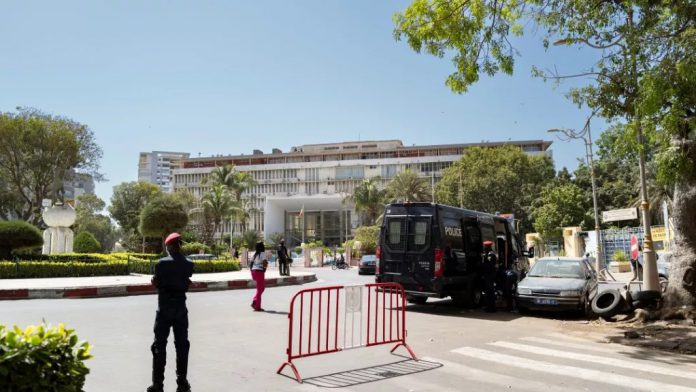Senegal’s parliament voted on Monday to postpone the presidential election until December 15 in a chaotic voting process that took place after opposition lawmakers were forcefully removed from the chambers as they debated President Macky Sall’s earlier decision to postpone the February 25 election.
Security forces stormed the legislative building and forcefully removed several opposition lawmakers who were trying to block the voting process on the unprecedented delay of the presidential election initially scheduled for Feb. 25.
The adopted bill extends Sall’s tenure which was due to end on April 2 until a new election.
However, the Senegalese government had on Monday restricted mobile internet access amid growing protests by opposition supporters against the delay.
As the lawmakers debated the bill, security forces fired tear gas at protesters gathered outside the legislative building. Many of the protesters were arrested as they poured into the streets of the capital, Dakar, burning tyres and criticizing the country’s leader.
On Monday, two opposition parties filed a court petition challenging the election delay. It was not clear what would become of their request for Senegal’s Constitutional Council to direct “the continuation of the electoral process.”
Analysts say the crisis in Senegal is putting one of Africa’s most stable democracies to the test at a time when the region is struggling with a recent surge in coups.
President Sall who in July said he would not seek a third term in office had cited an electoral dispute between the parliament and the judiciary regarding the candidacies as the reason for the postponement but opposition leaders and candidates rejected the move, calling it a “coup.”
The African Union also urged the government to organize the election “as soon as possible” and called on everyone involved “to resolve any political dispute through consultation, understanding and civilized dialogue.”
“We will not accept a constitutional coup in this country. It is up to the people to come out and liberate themselves,” said Guy Marius Sagna, an activist and opposition lawmaker, who was among the protesters.











